On Sunday, the 2nd of September we flew from Istanbul to our second destination – Tunis, the capital and the largest city of Tunisia. Tunis is known for its vibrant culture, laid-back vibe, exotic appeal, beautiful architecture, historic monuments, and breath-taking views. It surely managed to take our breath away. 😉 ♥ We had two days and a half to explore this amazing city.

Things to see and things to do
On our first day in Tunis, after checking in to our guest house, we went to explore Medina – the old part of the city, known for its architectural wonders and colorful markets. In the afternoon, we went to explore Sidi Bou Said, the picturesque Mediterranean-style neighborhood, famous for its amazing blue and white architecture, cafés with stunning views over the lovely shoreline, and artistic vibe. On our second day, we went to explore the ruins of ancient Carthage – one of the most popular tourist sites in or near Tunis, and in the afternoon we decided to return to the outstandingly charming neighborhood of Sidi Bou Said, to enjoy its wonderful sights some more. We have established that Tunisia has a lot to offer and that it would be foolish not to return to this stunning country. After all, we still have to explore El Djem, Djerba, Tunisia’s vast Sahara, and a lot more.
Tunis’ top attractions include:
- Medina
- Olive Tree Mosque (in Medina)
- The Bab el Bhar city gate (in Medina)
- Al-Zaytuna Mosque (in Medina)
- Ksar Mosque (in Medina)
- Carthage
- Sidi Bou Said
- The National Bardo Museum (which we didn’t get to visit)
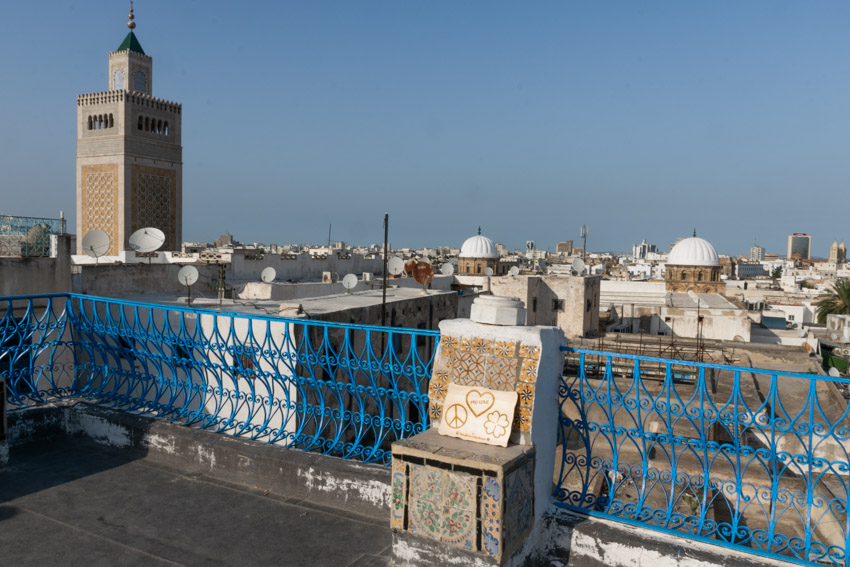
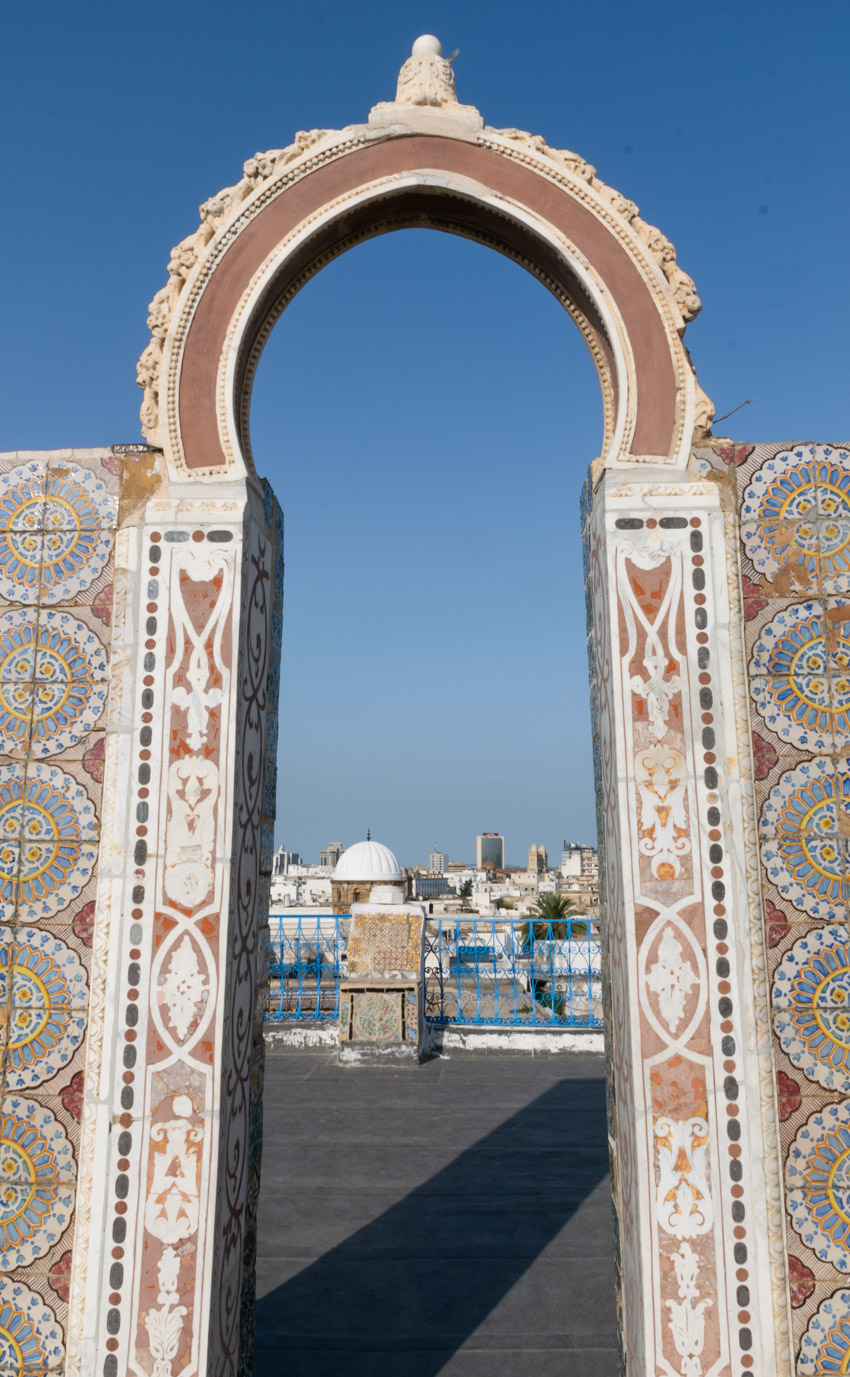
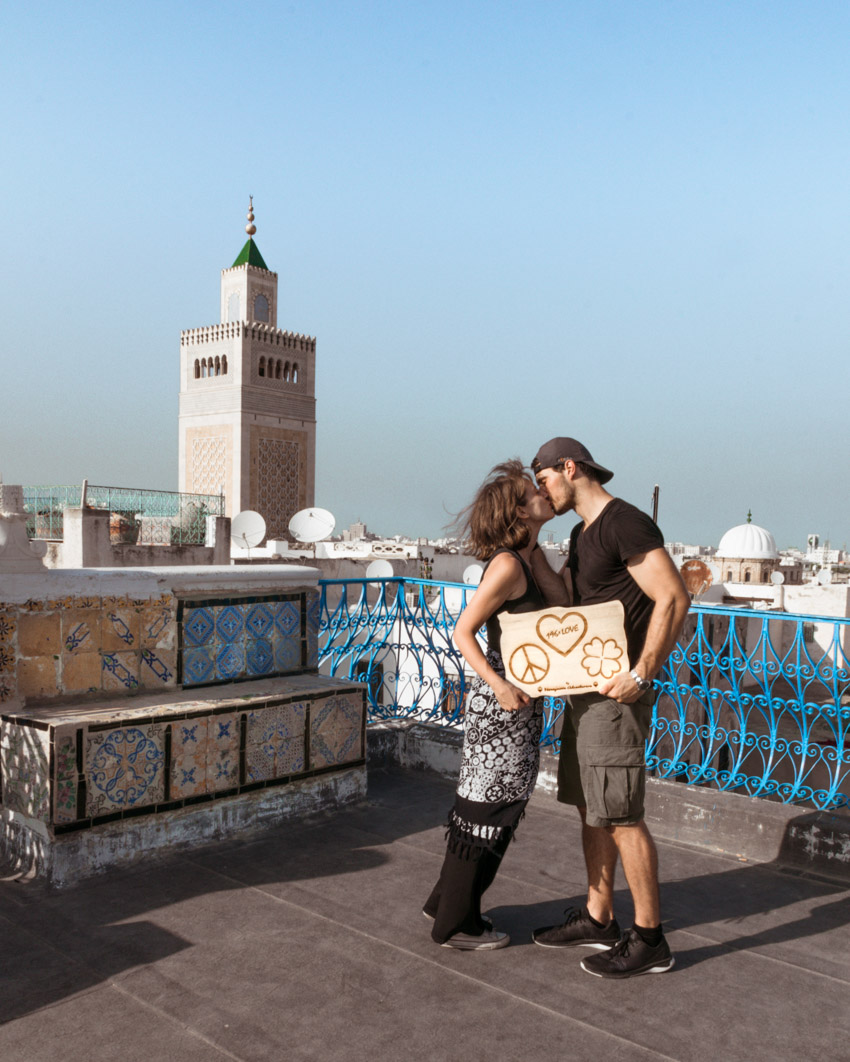
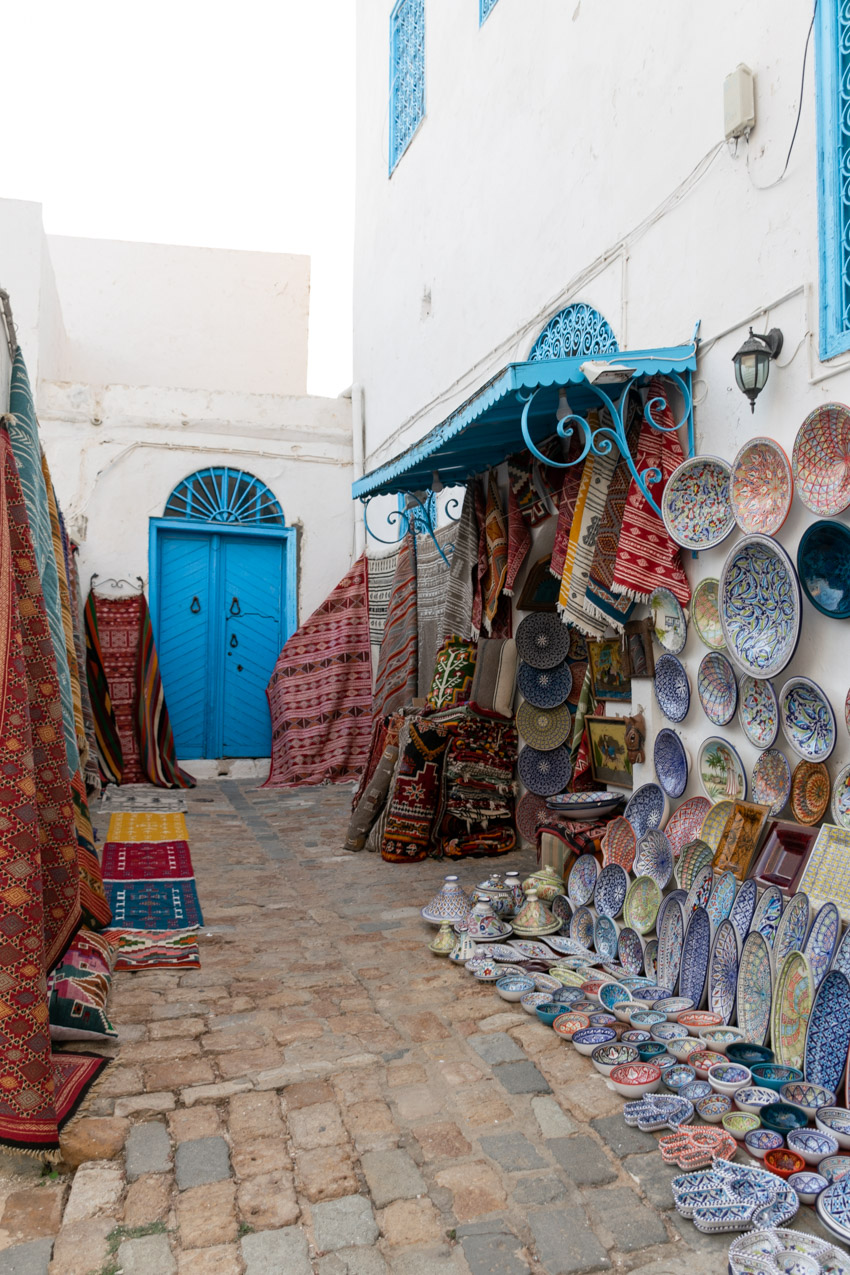
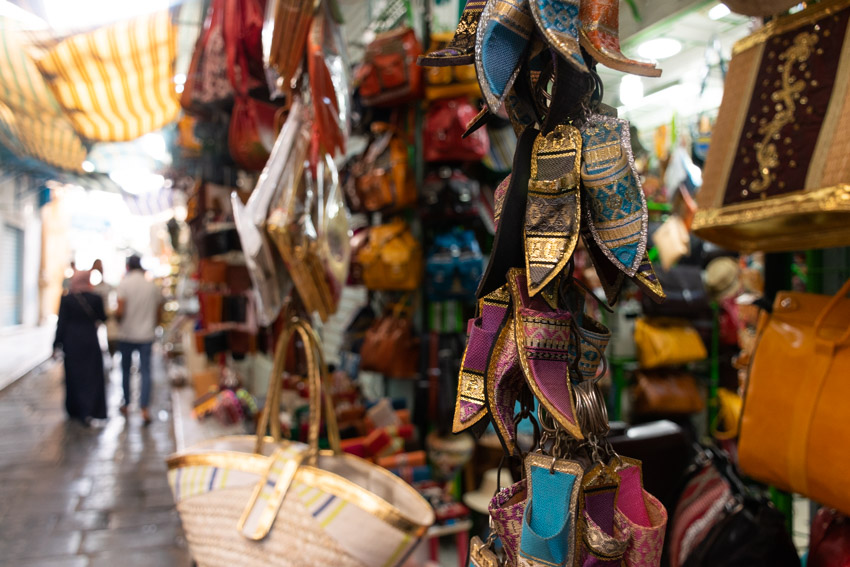

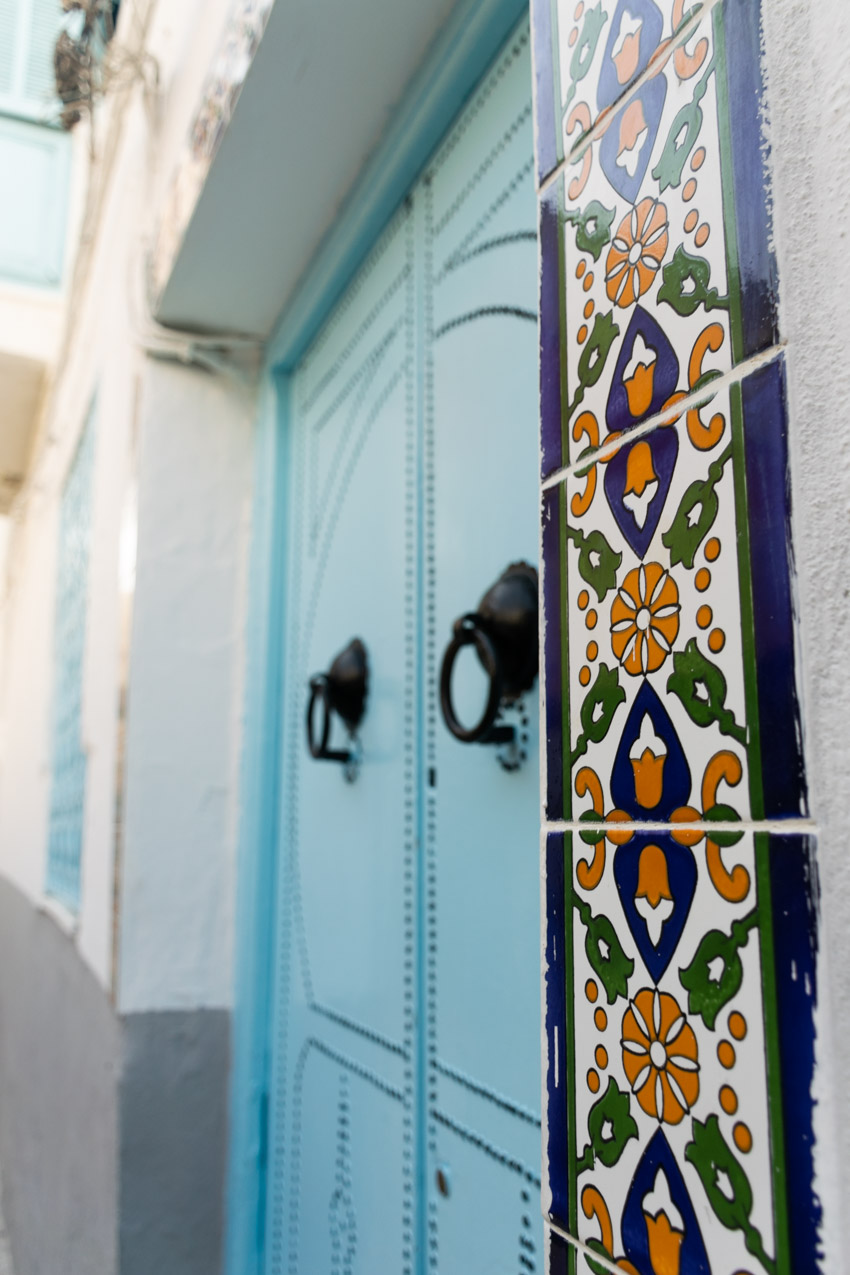
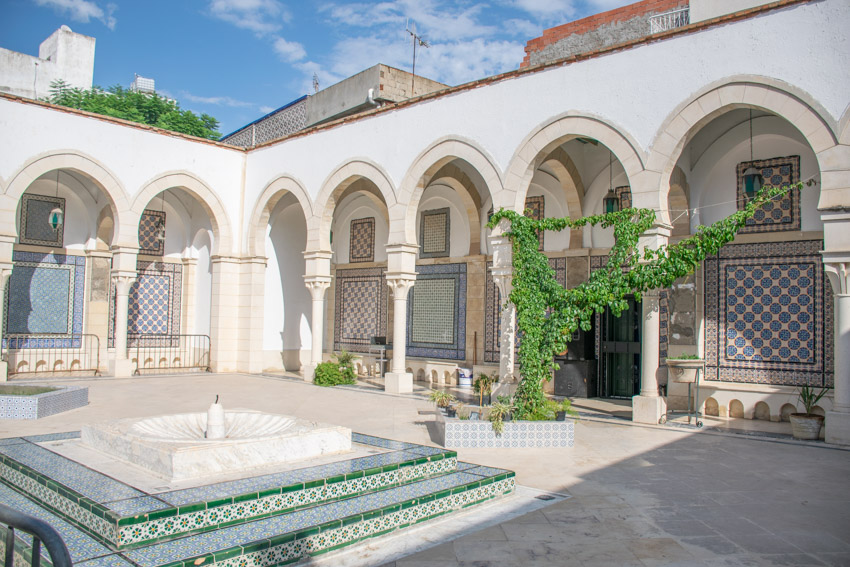
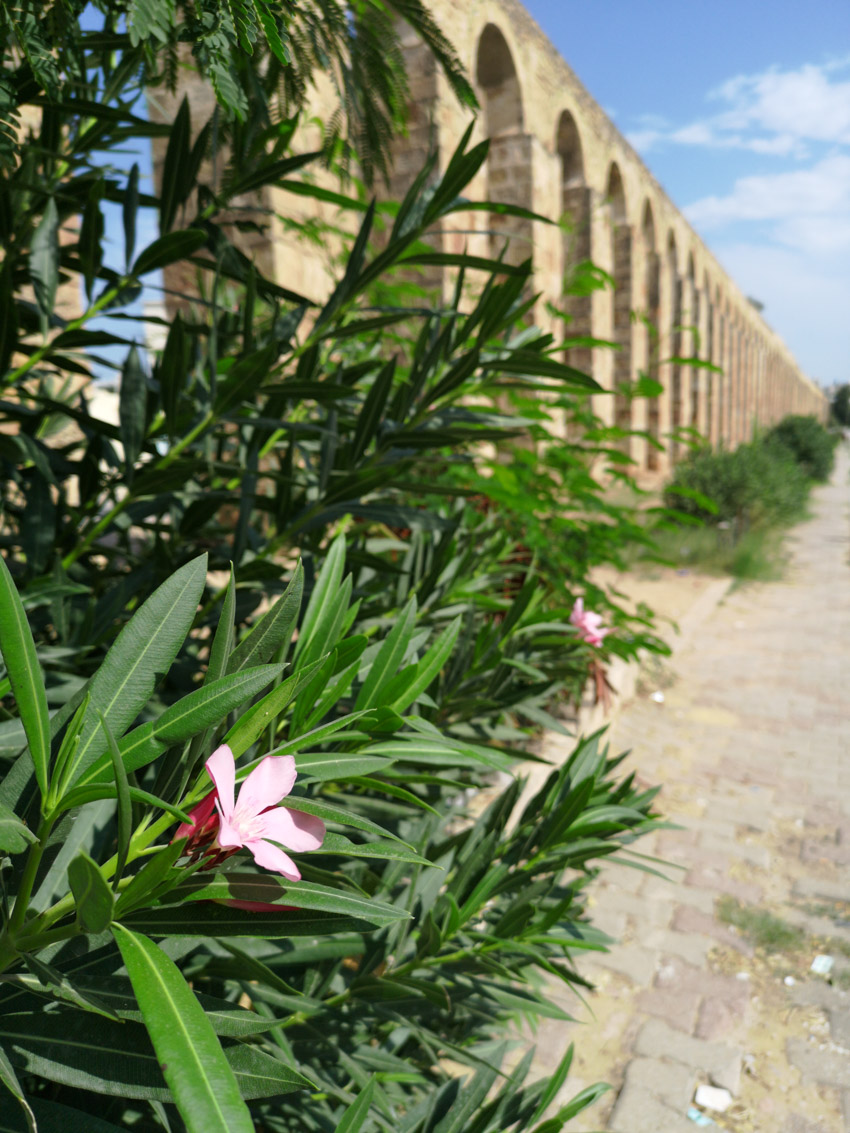
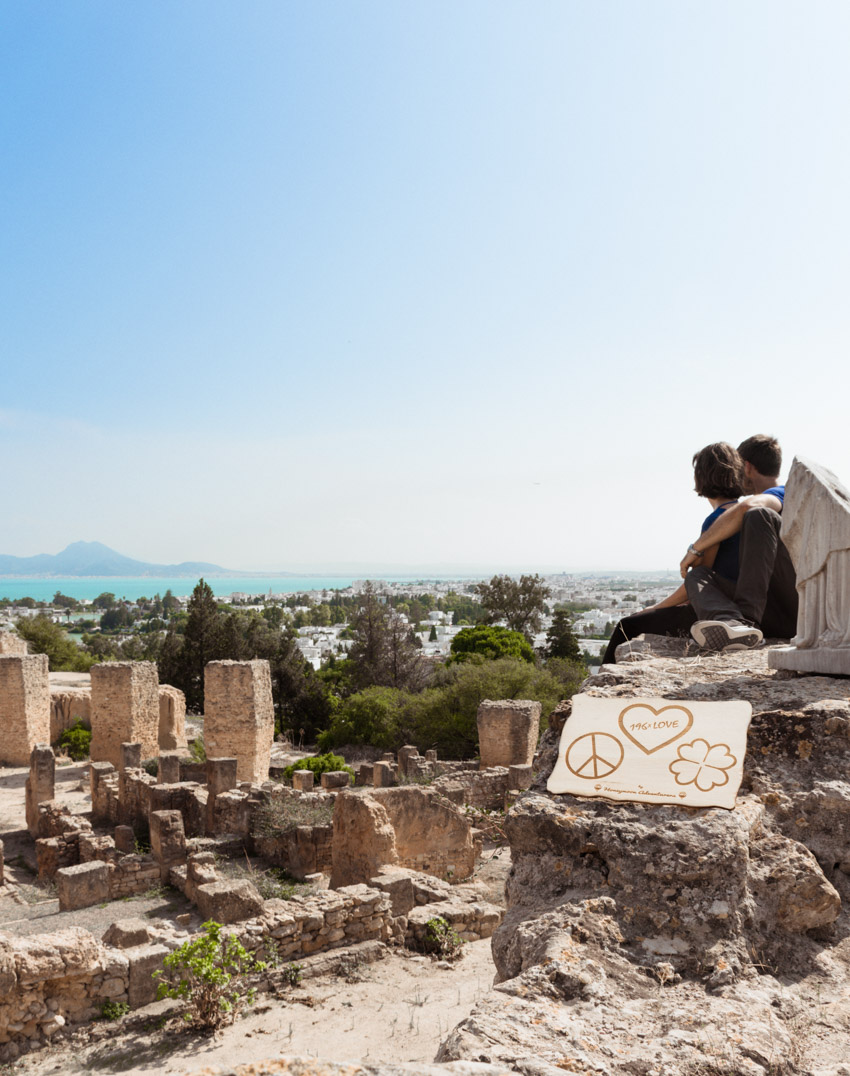
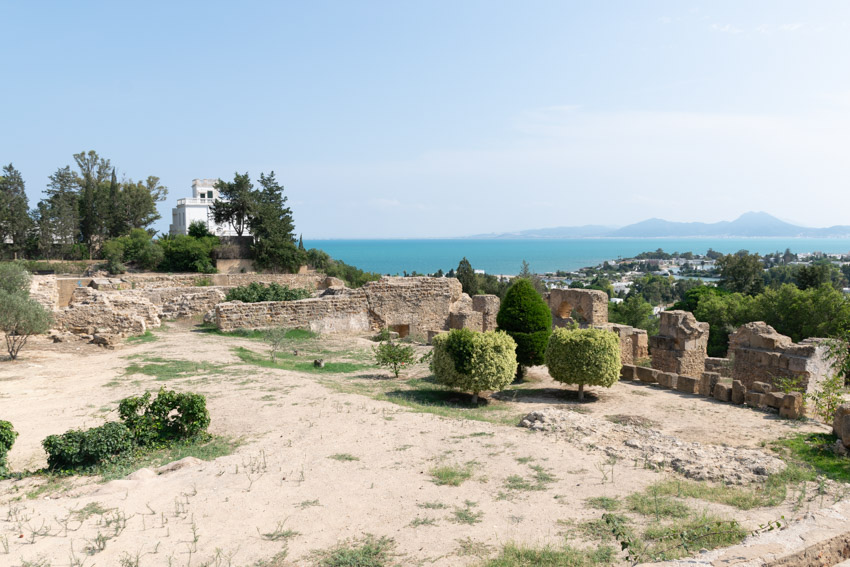
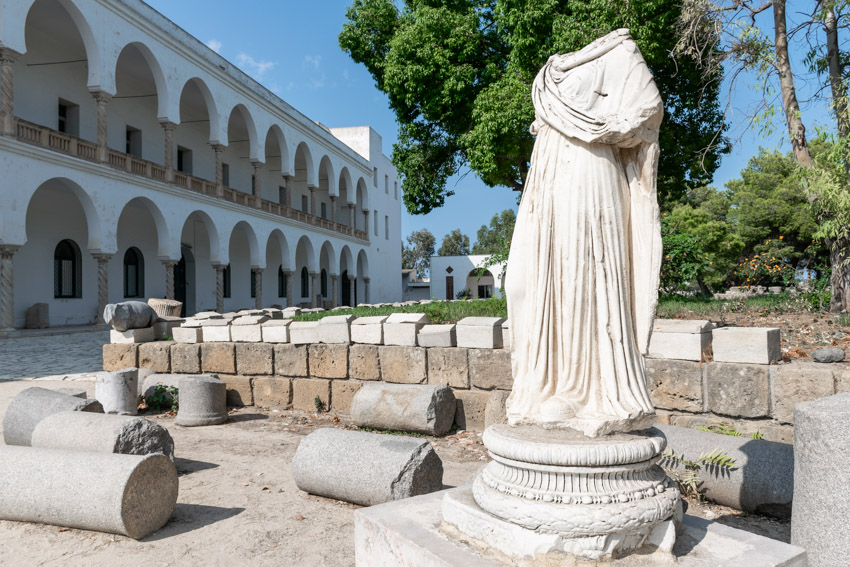
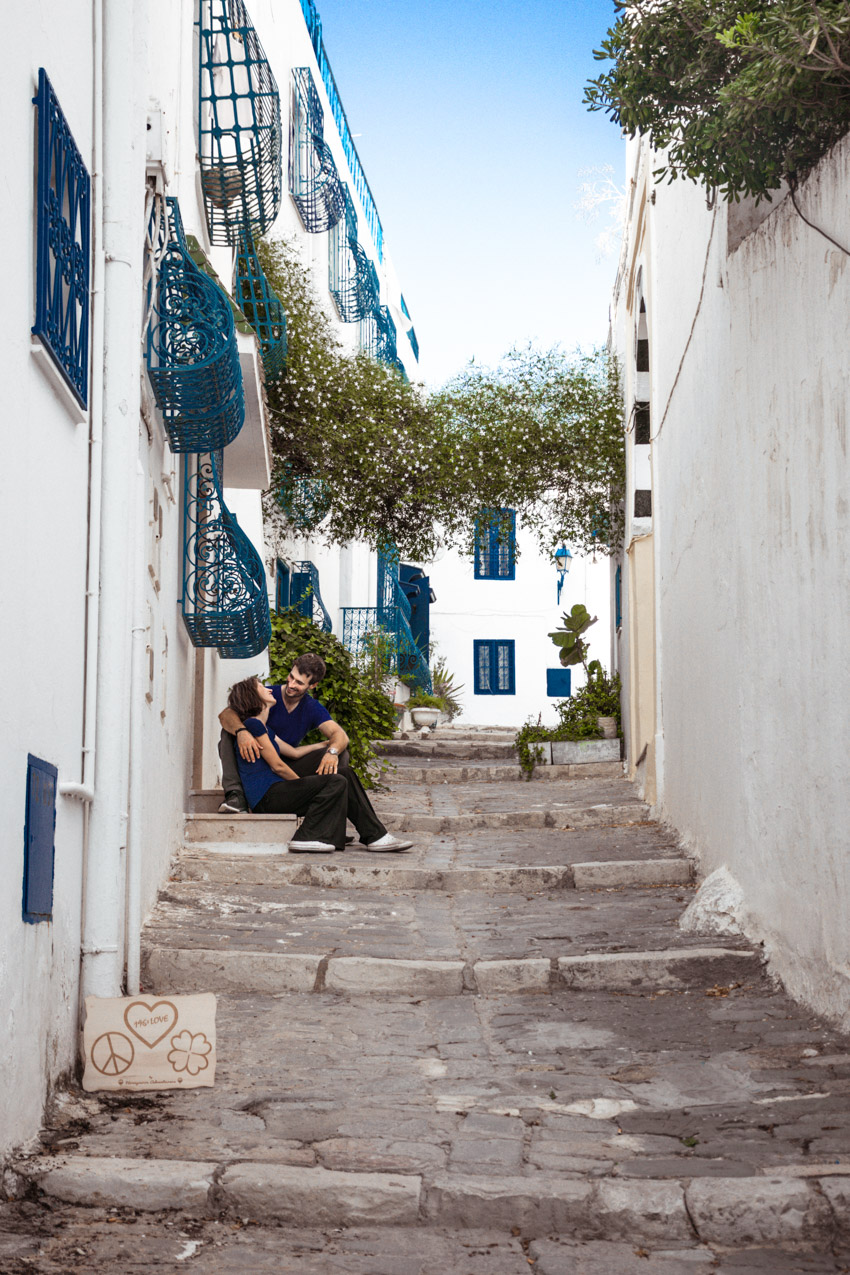
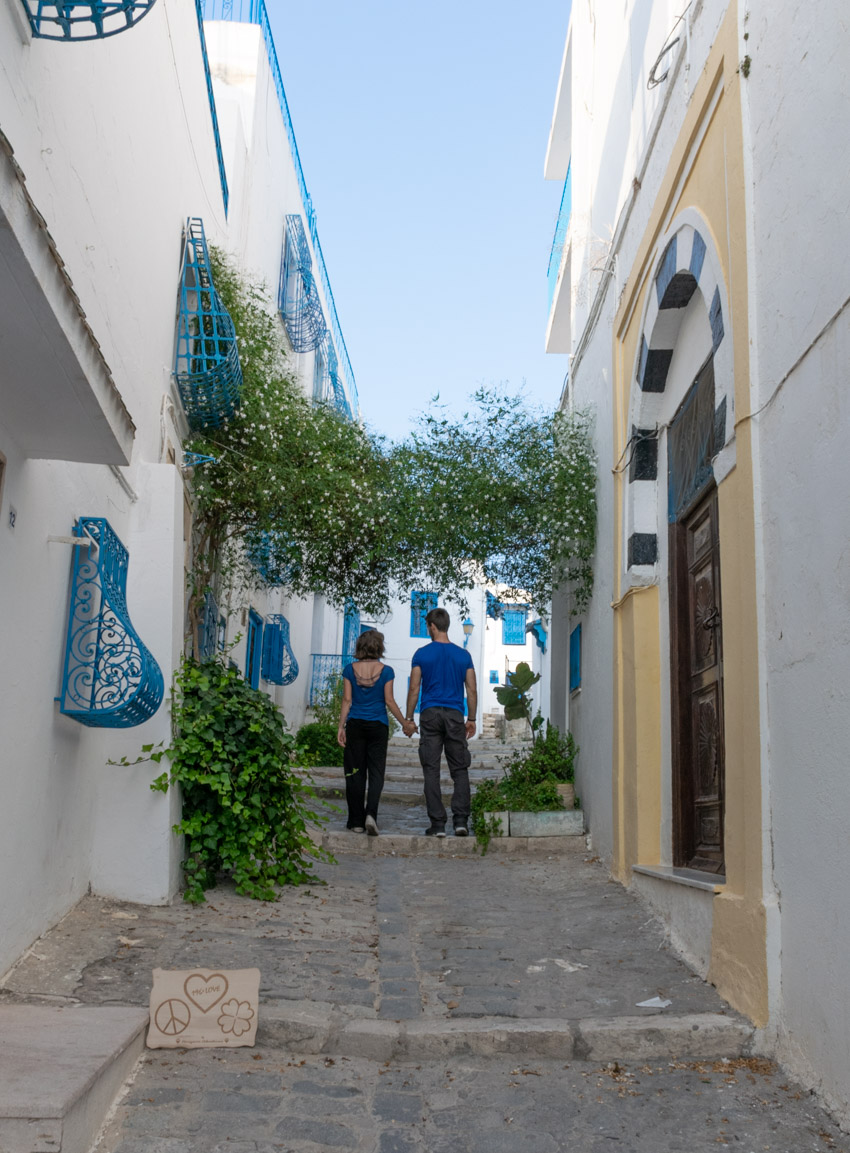
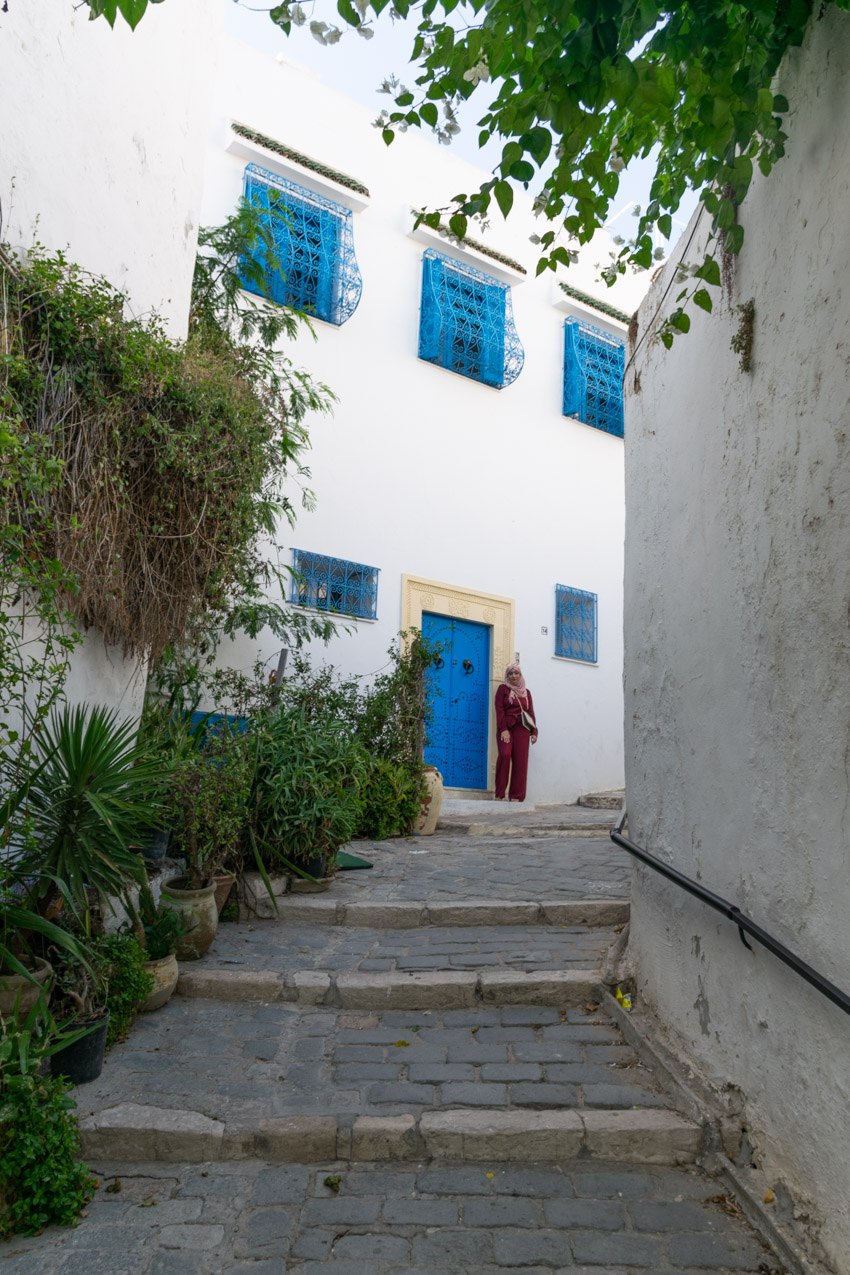
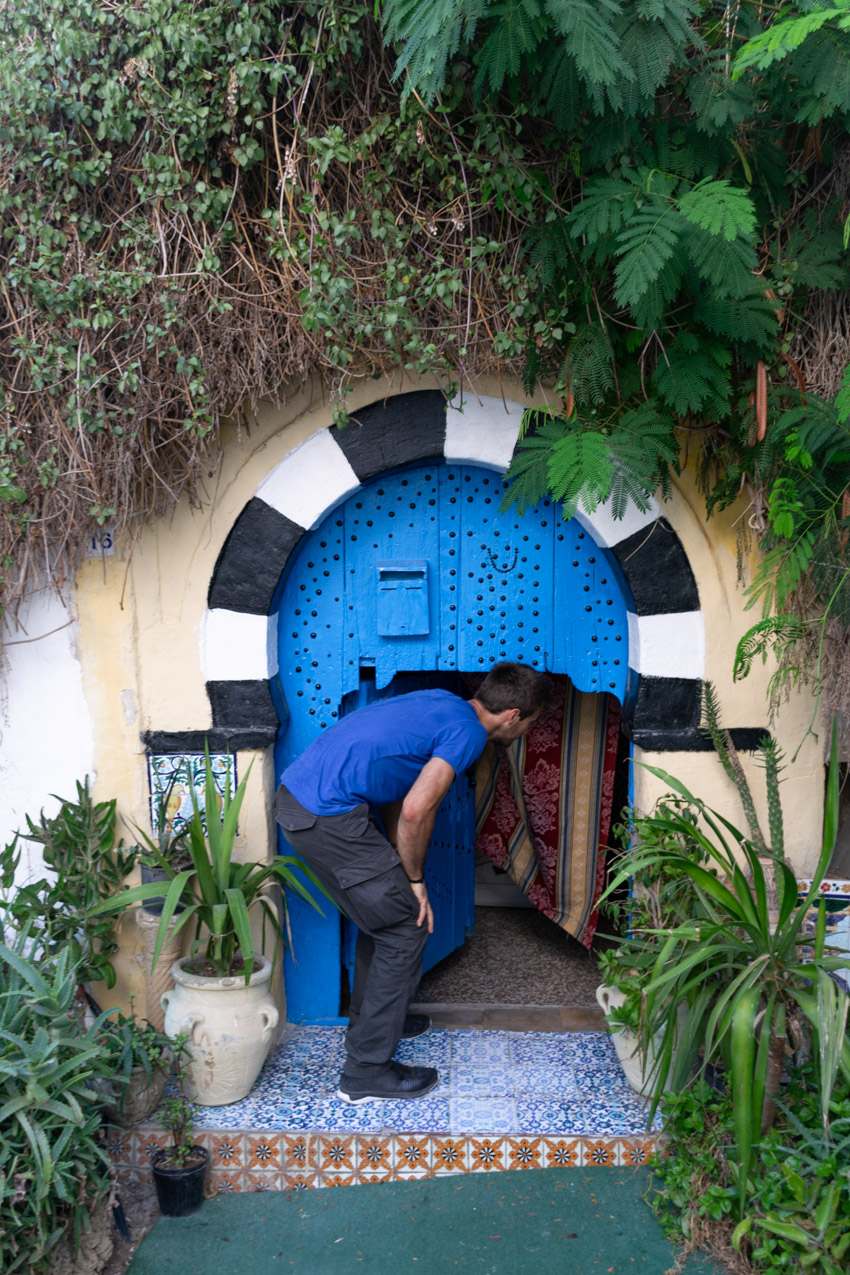
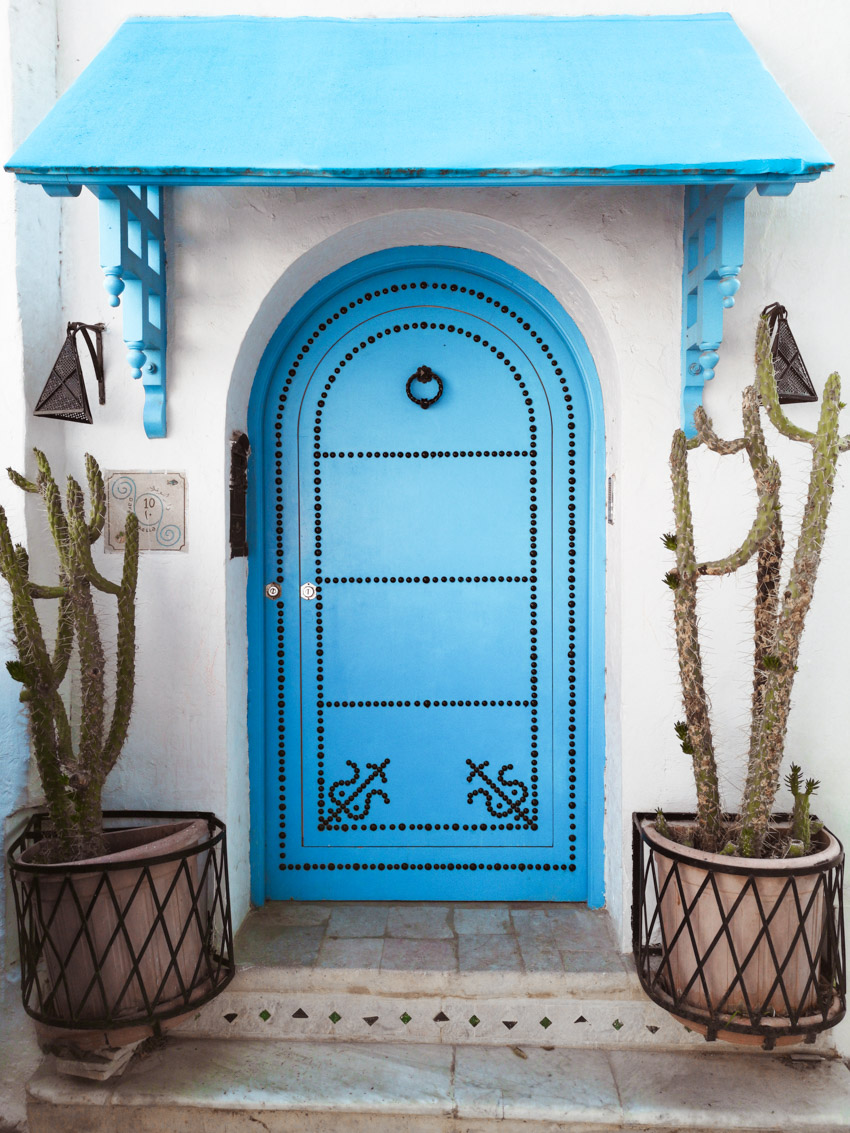
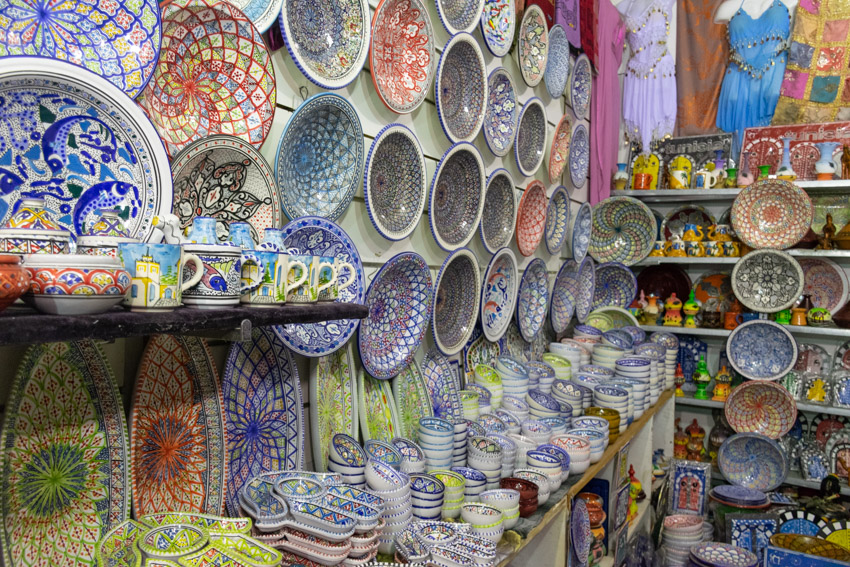
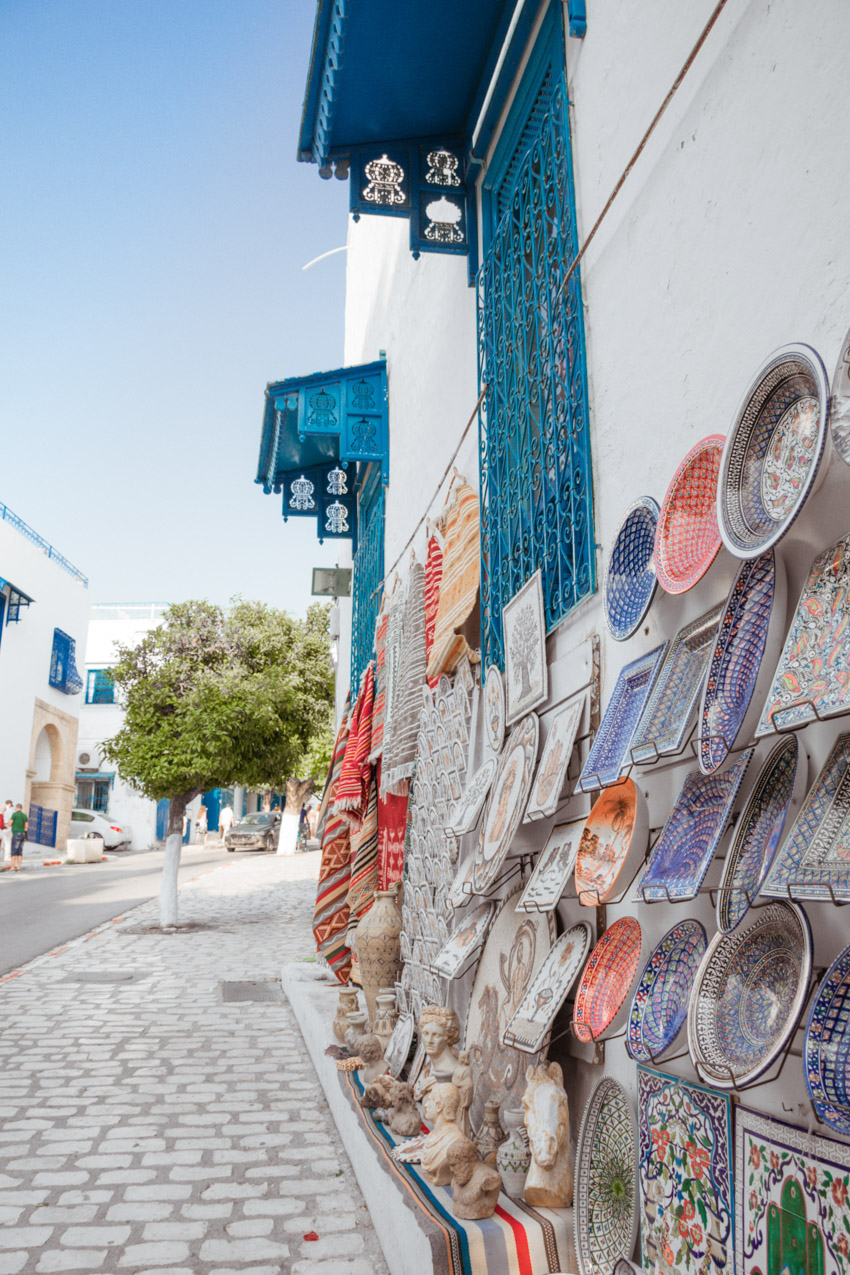
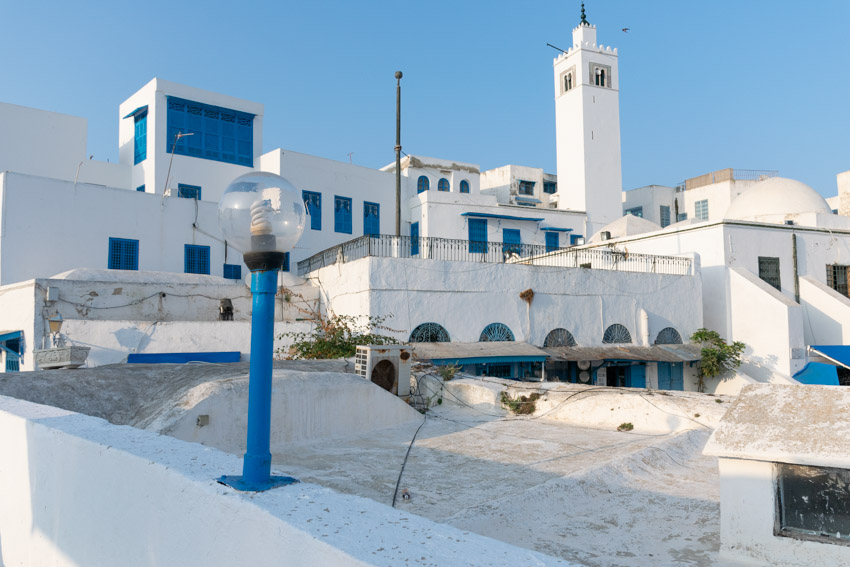
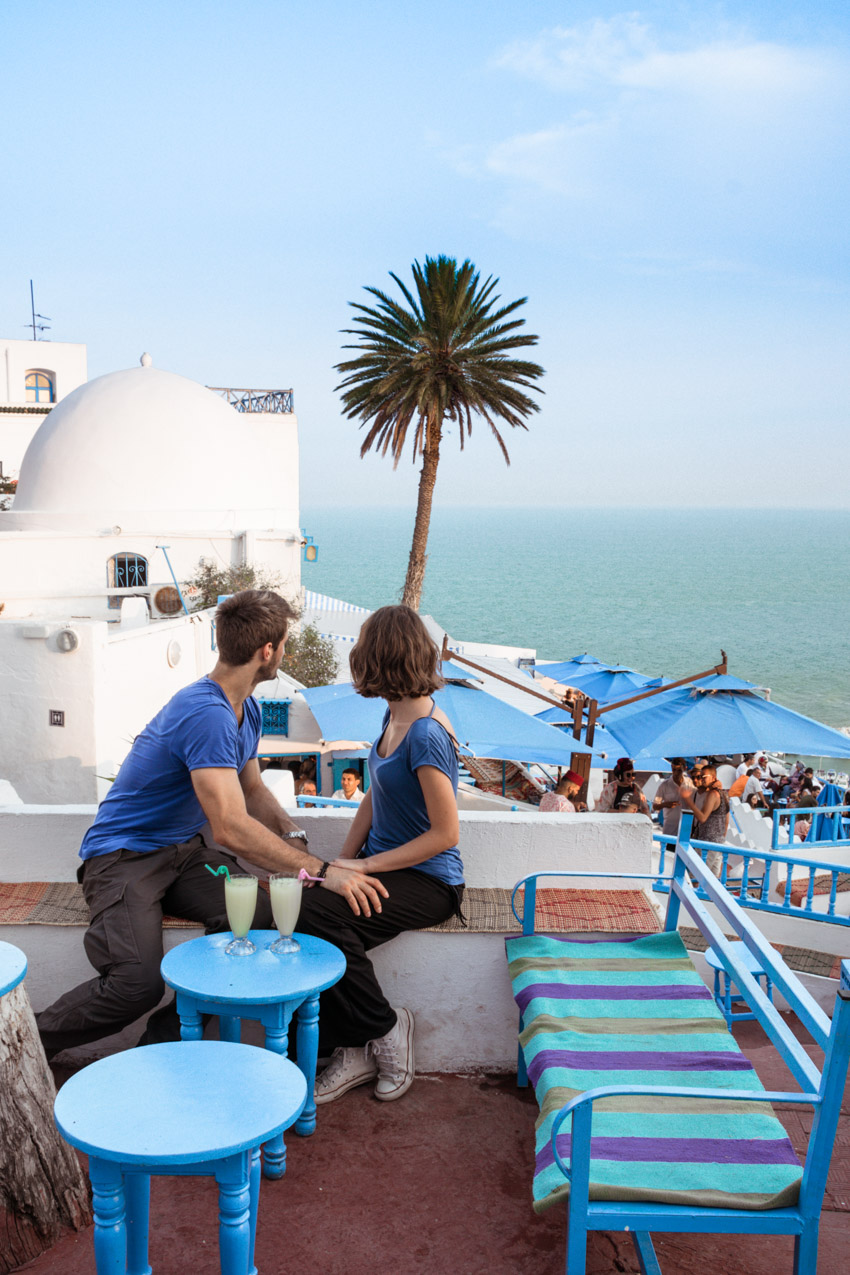
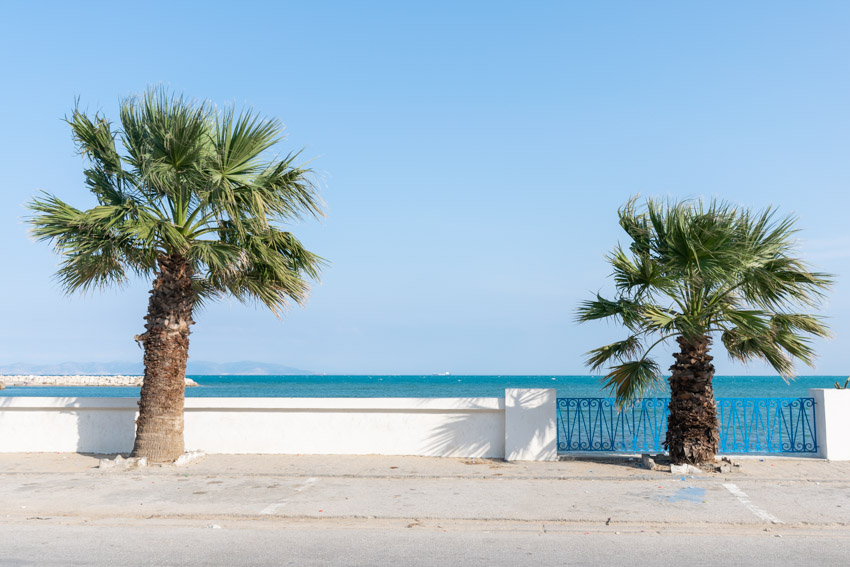
Where to stay
We were staying at a wonderful guest house called Dar la Leila. The location was not that great (it was pretty far from the main attractions, however, it has good connections), but everything else about it was perfect. The owner is very nice, she even picked us up from the airport, the room is beautiful, comfortable, and clean, and breakfast was included in the price.
Are you planning a trip to Tunis? Here you can get a room in this beautiful city with a 10% discount! 🙂
Budget
We made the mistake of dining at one of the most expensive restaurants in Sidi Bou Said, at the Cafe des Delices (which, by the way, offers one of the best views of all Tunisia) and therefore paid more than 40 Euros for two plates of fish with couscous and two lemonades.
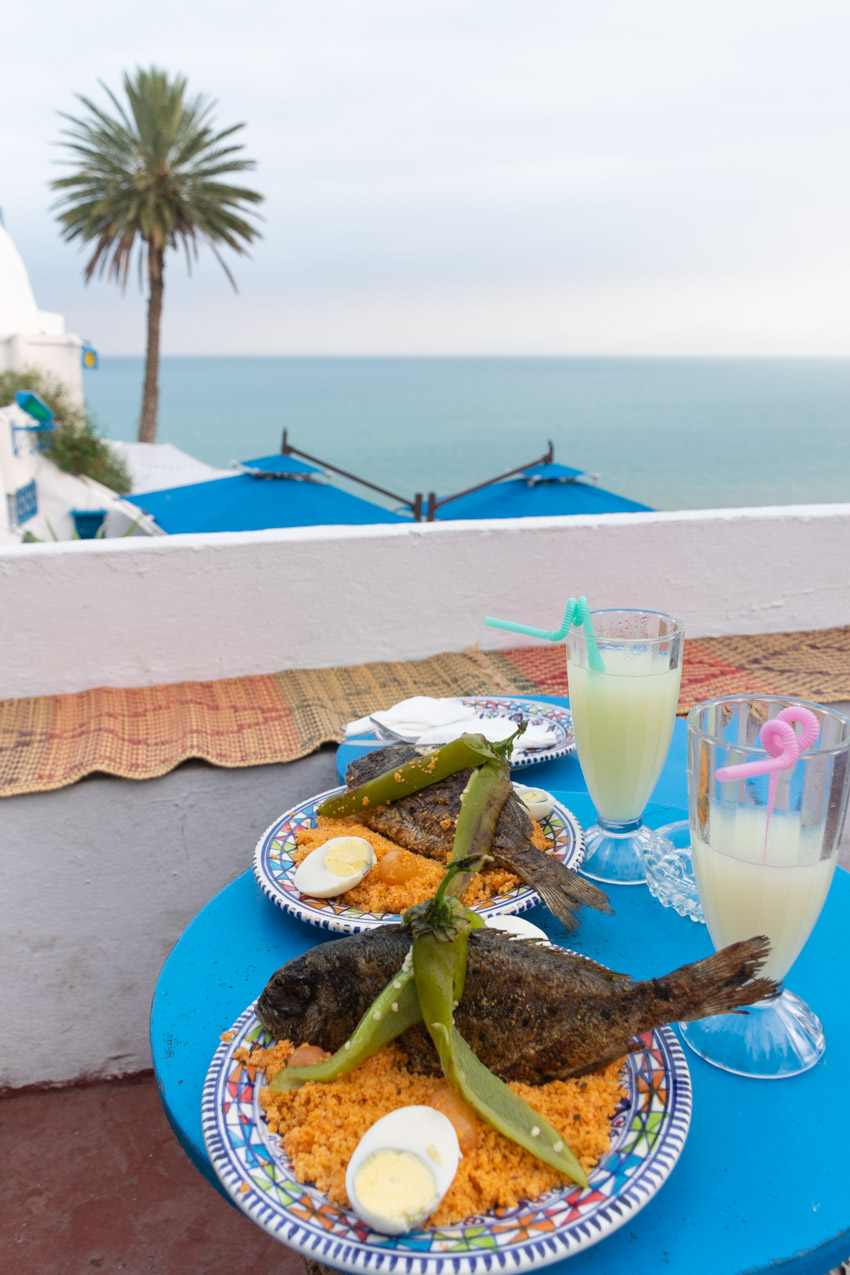
The prices are much cheaper in other, less touristy restaurants. Street food is quite inexpensive as well – we paid 1 Euro for a local dish at the main street of Sidi Bou Said. Public transportation (including taxis) is cheap as well. Careful though, taxis can cost up to 10 times more at the airport. You should ask at your hotel if they could pick you up at the airport. If you are
planning to travel by taxis, make sure that you tell them to use the taximeter. Also, note that sometimes it’s difficult to get an available cab.
We’ve had some problems withdrawing money from an ATM (with Mastercard and Visa), but maybe we just bumped into some broken ATM. It’s also difficult to pay with credit cards in hotels and restaurants, so it’s better to exchange your money for Tunisian Dinars at the airport.
Best time to visit
Weather-wise spring and autumn are the best times to visit Tunis or any other parts of Tunisia.
Environmental issues
As the driest inhabitable continent, Africa is particularly vulnerable to climate change. The temperatures are increasing and rainfall distribution patterns are changing throughout the continent. These changes cause severe droughts and water scarcity, affect ecosystems, native vegetation, and food production.
In Tunisia, desertification is a major problem. Soil erosion is causing the loss of agricultural land and overgrazing or overcutting of timber for fuel are resulting in severe deforestation. In urban areas, there are other environmental problems, such as overcrowding, poor sanitation, and pollution. Toxic and hazardous waste disposal is ineffective and poses health risks, while water pollution from raw sewage and industrial/agricultural activities threaten the nation’s limited water supply. Only 58% of the rural population has access to pure drinking water.
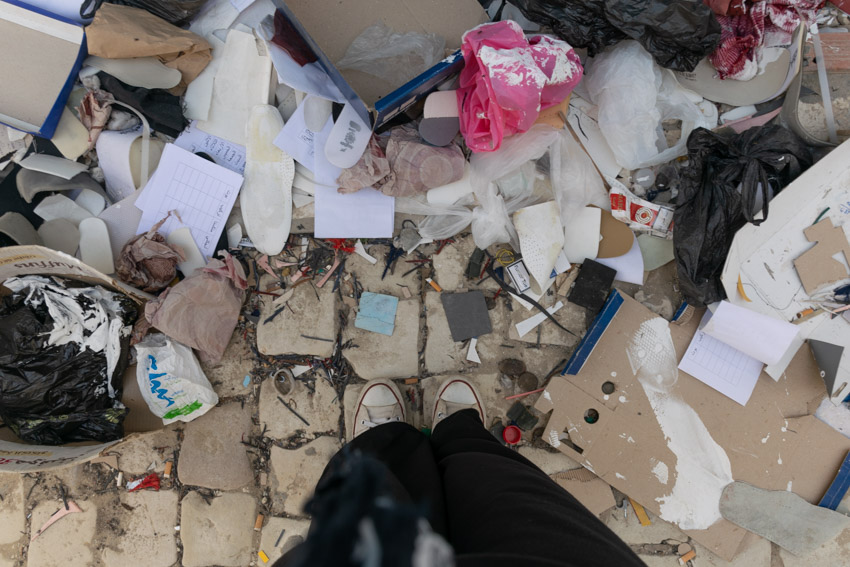
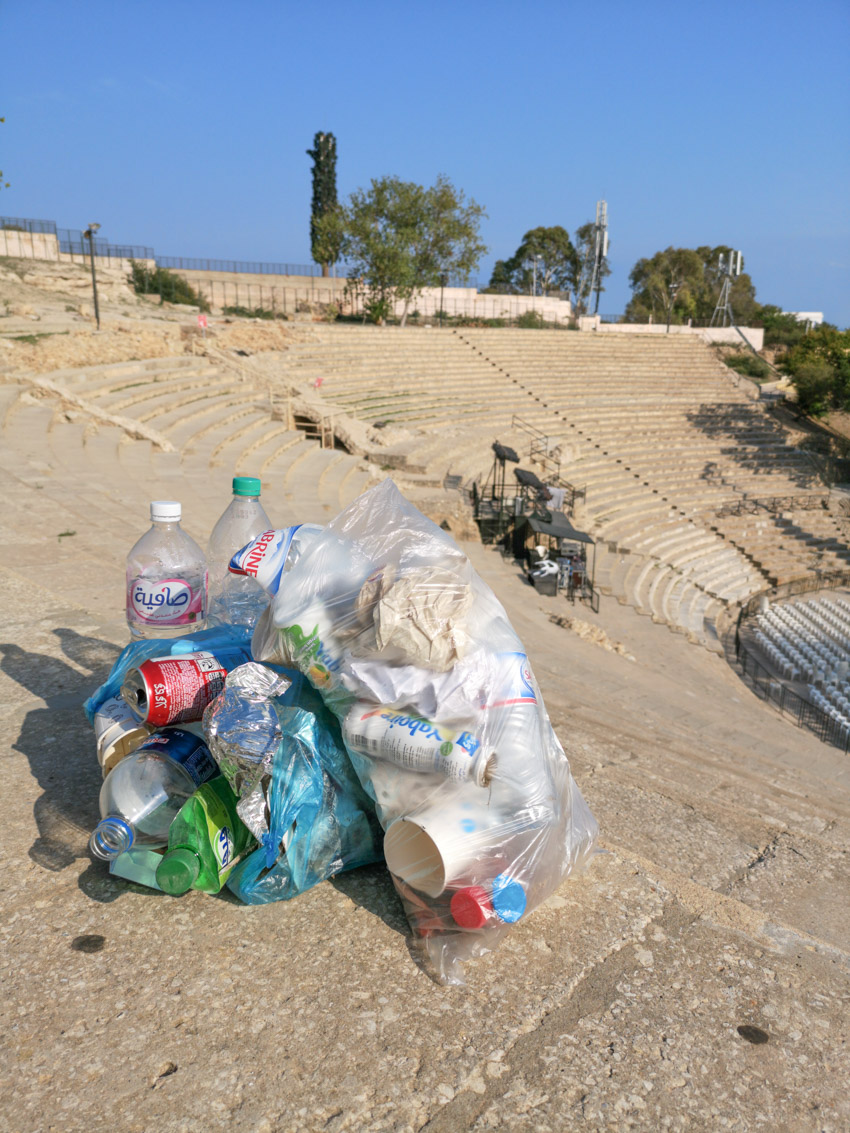
Romance and adventure
There was no time for adventure, but we did find plenty of romantic sights in and near Tunis. The most romantic place was probably the Mediterranean neighborhood of Sidi Bou Said. The fact that it’s so similar to the famous Greek island of Santorini, which is considered as one of the best honeymoon destinations, tells it all. A honeymoon in Tunis? Definitely a good idea! 😉 ♥
196XLOVE
The main goal of our expedition is to find love in all 196 countries and to prove that love is all around us, so we had to find love in Tunisia. It was an easy task. We found love in many different forms and bumped into some really heart-warming scenes. We have to say that it’s a real pleasure to look for
love. It makes us see the world in a whole different way, which is truly eye-opening. We have come to believe that if everyone would look at the world through the lens of love, the world would be a better place.
We were a bit disappointed by the fact that there is a lot of trash in Tunis. There is a ton of harmful plastic laying around everywhere. Sadly, we had no problem finding a place to do a 10-minute clean-up.

Other information
♦ Official languages: Arabic, French
♦ Currency: Tunisian Dinar (TND)
♦ Visa or other entry requirements: All visitors to Tunisia are required to have a valid travel document. Visa requirements depend on the traveler’s nationality. For more information check out their official website.
♦ Electricity standards: The power plug types in Tunisia are C and F, the standard voltage is 220 V and the standard frequency is 50 Hz.
♦ Timezone: UTC+03:00
♦ Check out the immunization recommendations and requirements for Tunisia here.
♦ Health and safety tips:
There are some safety concerns in Tunisia, but we have to say that we felt totally safe at all times.
You should always make sure to follow the usual travel safety precautions:
- Leave your jewelry and other valuable belongings in the hotel safe.
- Keep your emergency cash apart from the rest of your money.
- Dress comfortably and carry only the items you will need for the day.
- Don’t carry a lot of money.
- Always make sure to lock your room before leaving the hotel.
- Be aware of your surroundings at all times.
- Stay in well-lit areas.
- Try to maintain a low profile and do your best to fit in.
- Carry a travel wallet/money belt/money pouch for carrying money and documents safely.
- Avoid contact with potential scam artists.
- Avoid showing off valuable belongings (like cameras) in public.
- Don’t count your money in public.
- Keep an eye on your belongings at all times.
For other common safety concerns in Tunisia, check out Lonely Planet’s safety tips. For common health concerns check out Lonely Planet’s health tips.
To stay healthy while traveling, check out our health travel tips.
• Tap water in Tunisia is not safe to drink. Drink boiled, bottled, or filtered water instead. We use Grayl, a great water purifying bottle. You can get one for yourself here.
* Always make sure to reuse a water bottle to cut down on waste.
• Always make sure to use (eco-friendly) sunscreen.
♦ Local Customs:
Even though it is rather difficult to generalize the customs of many different Islamic nations since those differ between countries and even cities, we’ve prepared some guidelines to get you ready.
People in Islamic countries are usually polite, respectful, and very welcoming to foreigners (at least in areas that have some degree of tourism). However, as a tourist, you should prepare for the pushiness of the touts. When meeting someone a friendly handshake is customary; greetings between men and women
depend on the nature of the relationship – a bow or a nod may suffice. Revealing clothes (shorts and tank tops) and sloppy attire are frowned upon. Women are expected to dress modestly (skirts below the knees and shirts with sleeves). Of course, there are countries where women should cover their heads with scarves. Bargaining is acceptable and sometimes even necessary. Tipping is expected and welcome in hotels, restaurants, and tour services.
In many Islamic countries, the left hand is considered unclean, so you should try and eat with the right hand. Moreover, pay attention to pass food and gifts with the right hand. When stepping into one’s home, you should take your shoes off at the front door unless they tell you otherwise.
Interesting fact: in Iranian culture, gifts mean a lot more than monetary compensation. Travelers are encouraged to express their appreciation at hotels with a small gift from their country.
Honeymoon rating of the visited destinations: ♥♥♥♥♥♥♥♡♡♡
The country sure has a lot to offer, therefore a honeymoon in Tunisia sounds like a great idea! 😉
* Note: This is NOT a general rating of the country, it is merely our personal opinion of the mentioned site(s) as honeymoon destinations, based on the level of tourism development, the number and quality of romantic and adventurous activities and sites it offers, and safety. We strongly believe that every country is beautiful in its own way, they may simply be more or less honeymoon oriented/friendly.
** Follow the journey on Instagram. 😉 There you can see our clean-up stories and check out our peace and sustainable tourism promo photos/videos. 😉
*** Use the form on the sidebar to subscribe to our newsletter and get a free customized e-postcard from every country! 🙂
Leave a Reply